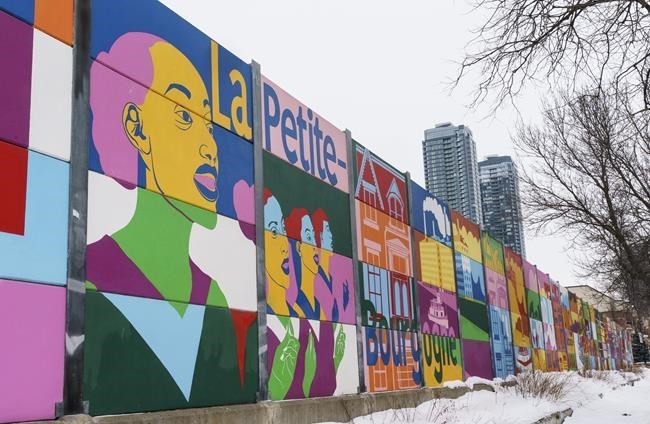MONTREAL — In Montreal's Little Burgundy neighbourhood, where the city's English-speaking Black community is rooted, some locals are seeking to revive an institution that once served as a community hub.
A citizens' group hopes to be able to rebuild on the former site of the Negro Community Centre, an institution in the Black community for nearly 70 years before it fell into financial trouble and was ultimately demolished in 2014.Â
“That spot was precious to our community, and so many of the elders we speak to speak with a fondness and love of that space, that what happened in its demise was very unfortunate," said David Shelton, a battalion chief with Montreal's fire department and a Little Burgundy resident seeking its restoration.
Shelton said the time feels right to revive the centre, envisaging a facility that would include a small museum or curated space dedicated to Black history. But he admits it will be an uphill climb: there have been failed attempts in the past, and the land is now privately owned.
“Our legacy and the legacy of those who endured to bring us to this day … I still find it critical we pay homage to them and we conserve those memories,” Shelton said in an interview this week.
These days, that legacy is not widely known. Montrealer Akilah Newton, executive director of a non-profit arts organization, says there is room for more Canadian Black history to be taught in schools, but the city could also do more to celebrate the rich history.
Newton has written books geared toward youngsters on Canadian Black historical figures and communities, and every February she takes part in a Black History Month tour to talk to students. She says sometimes when she mentions Little Burgundy, students associate it with a shoe-store chain of the same name, not the historic neighbourhood.
“It’s important to understand your roots, because the Black community was thriving in Montreal for many years," she said in an interview. "We had this incredible area in Montreal that people don’t know about."
The Black community's arrival in the neighbourhood was intrinsically linked to the rise of the railway in the late 19th and early 20th centuries, with Black men arriving to work as porters.
Those original residents would set up important institutions like Union United Church, established in 1907 and still thriving just west of Little Burgundy’s boundary.
The neighbourhood is perhaps best known for its links to music, notably legendary pianists Oscar Peterson and Oliver Jones, both sons of railworkers. The area was also home to jazz clubs like the Black-owned Rockhead’s Paradise.
“It was a small community, but it had a big impact,” said Dorothy Williams, a local historian and professor who has written extensively about Little Burgundy. At a time when mobility was not easy or quick, she said, "the Black institutions that started to develop were all centred there.”
That would change as the city knocked down part of the neighbourhood in the 1960s while building the Ville Marie Expressway, scattering Black families across the city.
“It left a real scar, it actually dispersed the Black community, which is sort of the ironic thing that Little Burgundy became associated with Black Montreal afterwards,” said Steven High, a Concordia University history professor.Â
In the neighbourhood, there are some streets and parks named for community icons, as well as massive murals honouring such influential figures as Peterson, Jones and the late Daisy Peterson Sweeney, an influential music teacher and Oscar Peterson’s sister.
For High, some of the community's contributions are underplayed, such as the role of Black-led labour unions founded by railway porters.
“Today, you can’t talk about Little Burgundy without talking about Oscar Peterson, Oliver Jones, Rufus Rockhead,” High said. “But there’s a hidden story of collective resistance that people don’t talk about: the first Black trade union in North America formed by porters, because 90 per cent of Black men worked on the railways.”
For those looking to revive the community centre, a plan to include a space devoted to Canadian and Montreal Black history would help fill that void.
“We are missing a place that celebrates our history, that we can call home, that we can call our own cultural centre,” said Victor Paris, a banking executive who grew up outside Montreal but spent his teen years at the Negro Community Centre learning music and playing basketball.Â
“The NCC was the epicentre of Black culture, so it means a lot for people to regain that space — the neighbourhood that was ours, of which we were dispossessed, and that particular property which was our home, of which we have been dispossessed.”
This report by The Canadian Press was first published Feb. 18, 2021.
Sidhartha Banerjee, The Canadian Press




